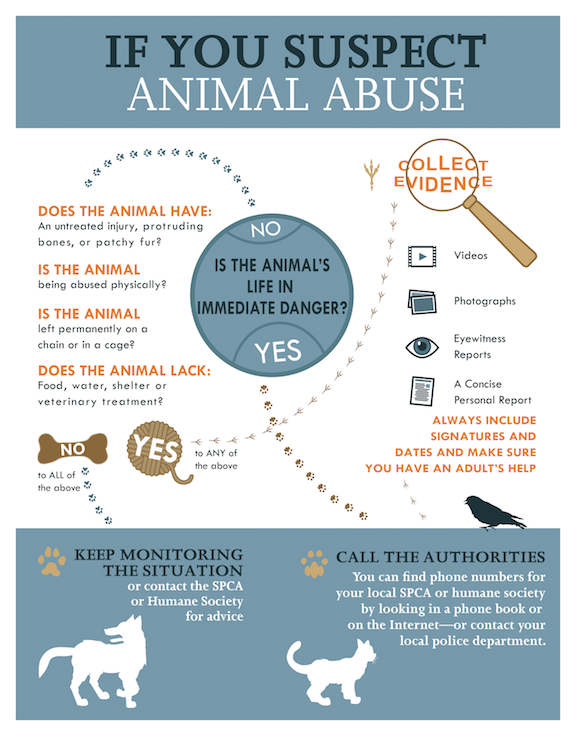Animal cruelty is a grave issue that plagues many communities across the globe. Those who witness acts of cruelty often grapple with the decision of whether to intervene, and if so, how to do it safely. An important resource for individuals in this dilemma is the ability to make an anonymous call to report abuse. This guide provides a systematic approach for those interested in taking action against animal cruelty while ensuring their identity remains confidential.
Before delving into the process, it is essential to understand what constitutes animal cruelty. Animal cruelty can manifest in various forms, from neglect and abandonment to direct violence. Examples include leaving pets in unsanitary conditions, denying them food and water, or employing physical punishment. Recognizing these behaviors is the first step toward effecting change.
Why opt for anonymity when reporting such incidents? The reasons are varied. Some individuals may fear retaliation from the abuser, while others might be apprehensive about legal repercussions. Moreover, remaining anonymous can encourage more people to report incidents without the burden of personal risk. With that in mind, here is a detailed, step-by-step guide to making an anonymous call about cruelty to animals.
Step 1: Gather Information
Before making a call, it is crucial to gather as much information as possible. Take note of the following details:
- Location: The precise address or identifiable landmarks are critical in directing help to the animals in need.
- Type of Animal: Specify the species and breed if known. This can aid in providing the appropriate resources and response.
- Narrative of the Situation: Document the times you witnessed the cruelty, the methods employed, and the condition of the animal. If possible, photographs or videos can be invaluable in substantiating your claims.
- Witnesses: If there are other individuals who can corroborate your observations, take their contact information, but remember this is not always necessary for anonymity.
Step 2: Identify the Appropriate Authority
Different jurisdictions have varying laws regarding animal protection. Common authorities to contact include:
- Animal Control Agencies: Many cities have dedicated departments responsible for investigating reports of animal abuse. They are generally equipped to take action swiftly.
- Shelters and Rescues: Nonprofit organizations often have the same authority and can mobilize resources to deal with abuse and neglect.
- Law Enforcement: In severe cases where a crime is being committed, contacting local law enforcement may be necessary.
Research the correct contact number for your local animal control agency or the animal welfare organization in your area. Make sure the organization you choose allows for anonymity when reporting incidents.
Step 3: Make the Call
When you have your information ready, it is time to make the call:
- Use a Private Line: If possible, use a landline or a phone you don’t typically use. This adds an additional layer of anonymity.
- Withhold Caller ID: If using a mobile phone, you can often dial *67 before the phone number to block your number from appearing.
During the call, present the facts collected concisely:
- Begin with your concern for the animal’s well-being.
- Detail your observations clearly and factually without embellishment.
- Provide important information, including location and the type of animal involved.
Remain calm and composed; the individual on the other end is there to assist and is likely experienced in handling such reports.
Step 4: Follow Up
Sometimes, it might be necessary to follow up on your report. Many agencies keep information confidential, but asking for a case number or a general update can provide closure:
- Check the Agency’s Policy: Many organizations publish their policies regarding anonymous reports on their websites. Familiarize yourself with them.
- Be Patient: Investigations may take time, and animal welfare agencies often handle multiple cases simultaneously. Understand that immediate action may not always be possible.
Step 5: Engage the Community
Once you’ve taken action, consider engaging with your community about animal welfare. Anonymity can be maintained while promoting awareness:
- Educational Workshops: Advocate for discussions on recognizing and reporting animal cruelty.
- Support Local Shelters: Volunteering or aiding in fundraising can boost capabilities for swift responses to cruelty reports.
- Social Media Advocacy: Utilize platforms to share information while remaining anonymous to inspire others to take action.
Step 6: Remember, You Are Not Alone
The fight against animal cruelty is a collective effort. Many individuals share the same concerns, and resources are available to support your activism. Seeking advice from seasoned animal rights advocates can help empower you further. Remember, every call goes a long way toward raising awareness and fostering a culture of care for our fellow beings.
In conclusion, while the road to addressing animal cruelty can be fraught with challenges, knowing how to report suspected abuse anonymously can empower citizens to take action. Your voice can be instrumental in protecting the voiceless. Through careful observation, a structured reporting process, and extended community involvement, strides can be made towards alleviating the suffering of animals in our society.








